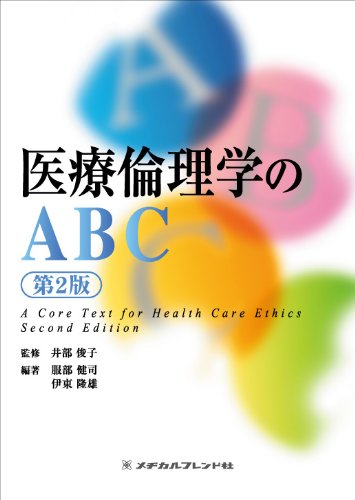2 0 0 0 OA 心と身体の架橋としての自殺論 : 精神科領域における自殺への治療的介入の倫理的問題
- 著者
- 伊東 隆雄
- 出版者
- 日本医学哲学・倫理学会
- 雑誌
- 医学哲学 医学倫理 (ISSN:02896427)
- 巻号頁・発行日
- vol.18, pp.78-89, 2000-12-15 (Released:2018-02-01)
In the fields of medical service, the death of patients is regarded as a failure of medical care. Patients have rights to live and exercise their rights during the therapeutic process, so the therapist should respect their rights and perform medical care with all his energy in order to save the patients' life. As a result, medical care shows a marked tendency toward excessive intervention in order to prevent patients' death. In psychiatry, there are many patients who attempt suicide. Psychiatrists should encourage them to give up the idea of attempting suicide. To help patients avoid suicide, restrictions shoild be placed on therapeutic interventions such as psychological, pharmacological and physical restrictions. Most patients will give up suicide with appropriate treatment. But only a few psychotic patients think themselves to be not alive already. They are dead mentally and socially, but not dead only physically yet. There is deep discrepancy between their mind and body. They cannot die a natural death about their body, so attempt suicide as a linkage between their dead-mind and living-body to recall their lost identity again. Excessive intervention in order to prevent them from suicide will bring them more severe despair. They think they are deprived of their death, and believe they cannot only live but also die. We must know the facts and give patients the chance to recognize their true wishes to live, and we should try to look for some pieces of hope through alternative excessive restrictions.
1 0 0 0 OA 痴呆老人のターミナルケアにおける倫理問題
- 著者
- 伊東 隆雄
- 出版者
- 日本医学哲学・倫理学会
- 雑誌
- 医学哲学 医学倫理 (ISSN:02896427)
- 巻号頁・発行日
- vol.20, pp.30-42, 2002-11-10 (Released:2018-02-01)
There have been many discussions, from various positions, about what kind of care is needed with regards to terminal care for the elderly with dementia. Although it is generally thought that extraordinary treatment and care are not necessary, in reality, there is a marked tendency for excessive treatment to be performed in our country, because most physicians have difficulty accepting natural death. This is due to many physicians' strong belief that the death of a patient means a defeat for medical treatment. The elderly with dementia will not die by the disease directly, but from a complication such as pneumonia. Therefore, keeping the patient from such a complication extends a patient's life for a longer period of time. The situation of the elderly with dementia is reminiscent of the Struldbruggs in "Gulliver's Travels". In this story, these immortals must live eternally and cannot die even though they age with dementia. Furthermore, endless life-prolonging is not the purpose of terminal care. Certainly, the intellectual faculties of the elderly with dementia weaken, but, they continue to be able to maintain their emotional faculties when interacting with others. Such coexistence and feelings of emotion are basic of care and are not invasive conduct. If the medical care provider accepts the patient's death and is sympathetic to them, it is thought that appropreate medical treatment and care should be carried out naturally.
- 著者
- 伊東 隆雄
- 出版者
- 日本医学哲学・倫理学会
- 雑誌
- 医学哲学 医学倫理 (ISSN:02896427)
- 巻号頁・発行日
- vol.16, pp.112-122, 1998-10-01 (Released:2018-02-01)
Psychotic patients are different from demented people because they possess the ability for competence in principle. Therefore, medical treatment must be performed based on the concept of informed consent. But in reality, there can be discrepancies between their overt-will and covert-will, because they have pathological thought processes due to double orientation and ambivalence. So we must speculate on their true wishes, and act appropriately. If they express their true wishes covertly, performing medical treatment on them involuntarily is not paternalistic intervention. I consider this behavior one which is based on self-determination. In this situation, we must carry out treatment for somatic complications, and the range of the treatment we can do should be within the area of low invasive therapy, for example, medication or injection. We may not arrive at a consensus for surgical operations and more invasive therapies. I report on two schizophrenic cases in this paper, one with breast cancer and the other with diabetes. We could not carry out a surgical operation for the first case, but I am now using injection of insulin for the second case. In the field of clinical medicine, there is a tendency for informed consent to be considered part of the therapeutic contract. In this context, overt expression of agreement is necessary in order to set up the contract. Psychotic patients express their wishes for treatment unclearly or covertly, so they do not have the opportunity to receive treatment even though they want to. Expanding the bounds of informed consent for psychotic patients would place them at a disadvantage and deprive them of medical treatment. I worry about the emergence of a new form of discrimination against psychotic patients.
1 0 0 0 医療倫理学のABC
- 著者
- 服部健司 伊東隆雄編著
- 出版者
- メヂカルフレンド社
- 巻号頁・発行日
- 2012
